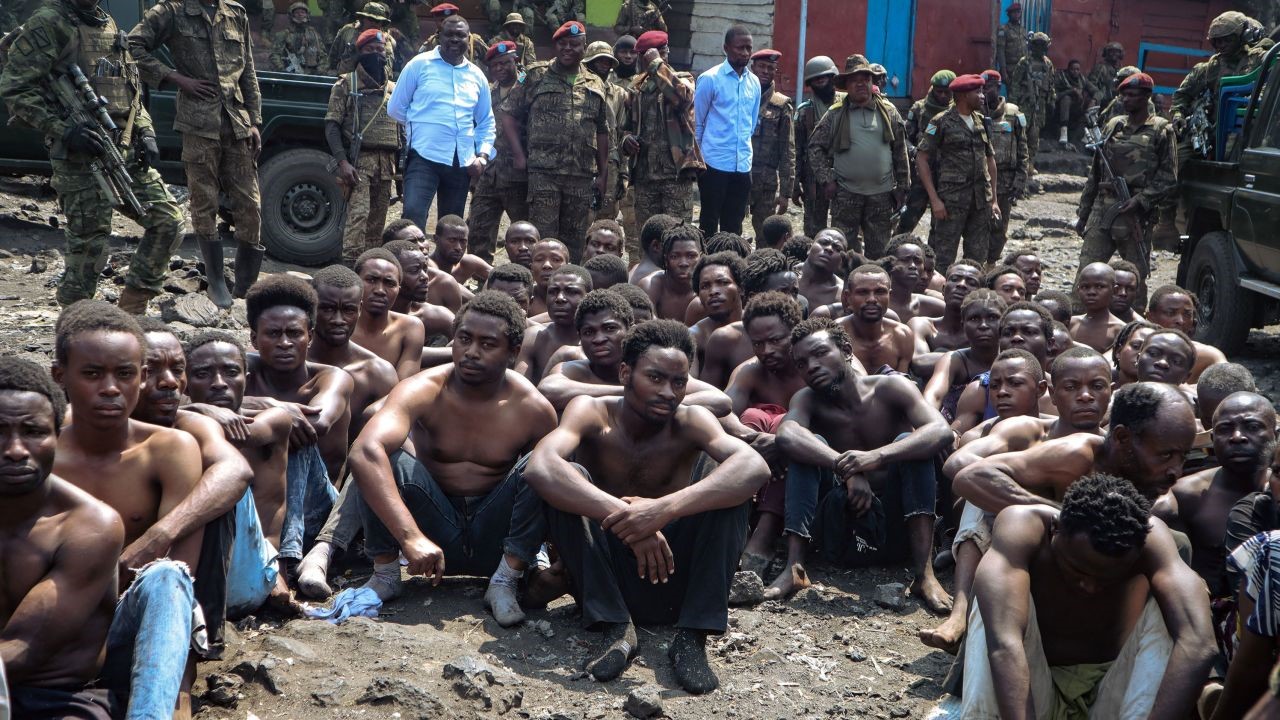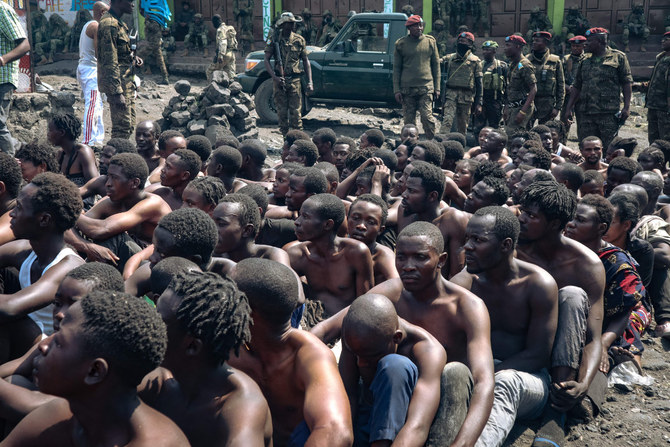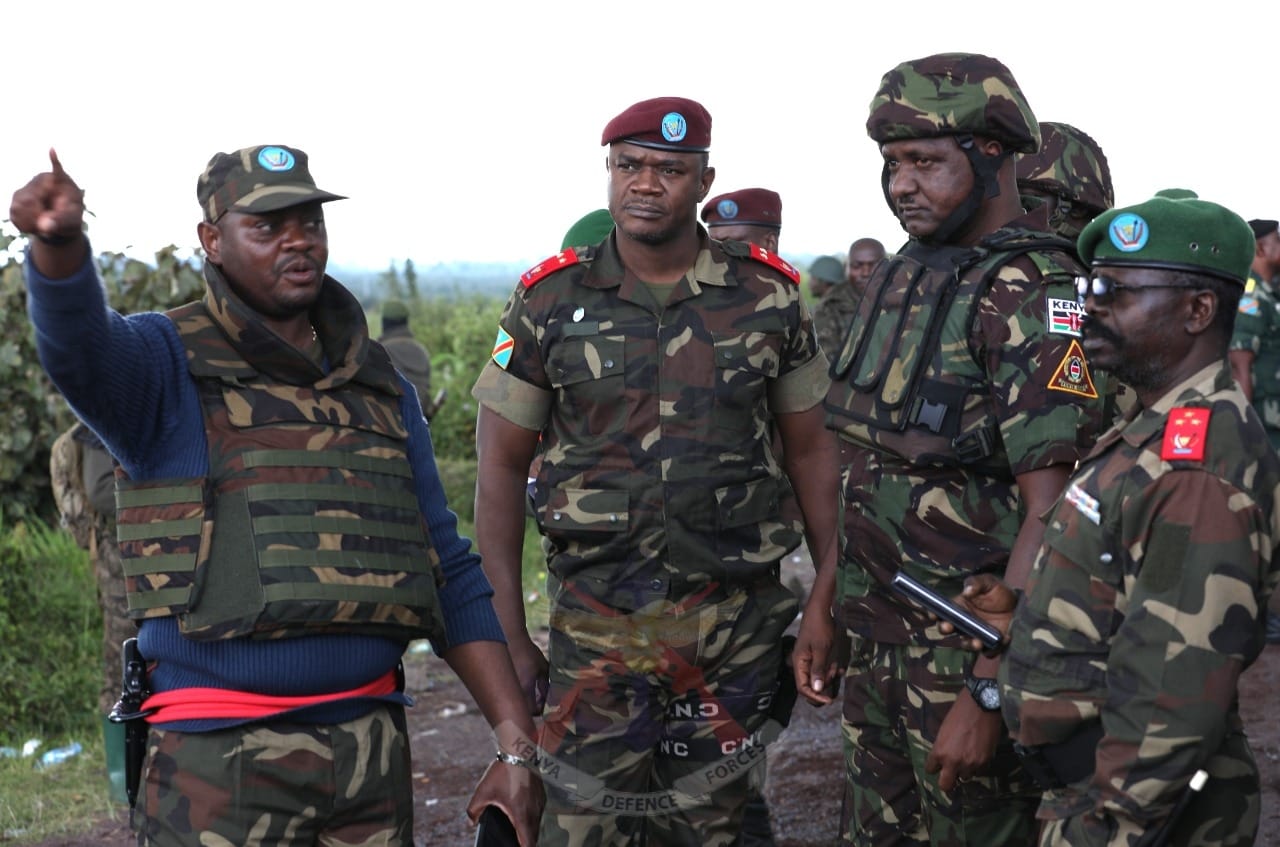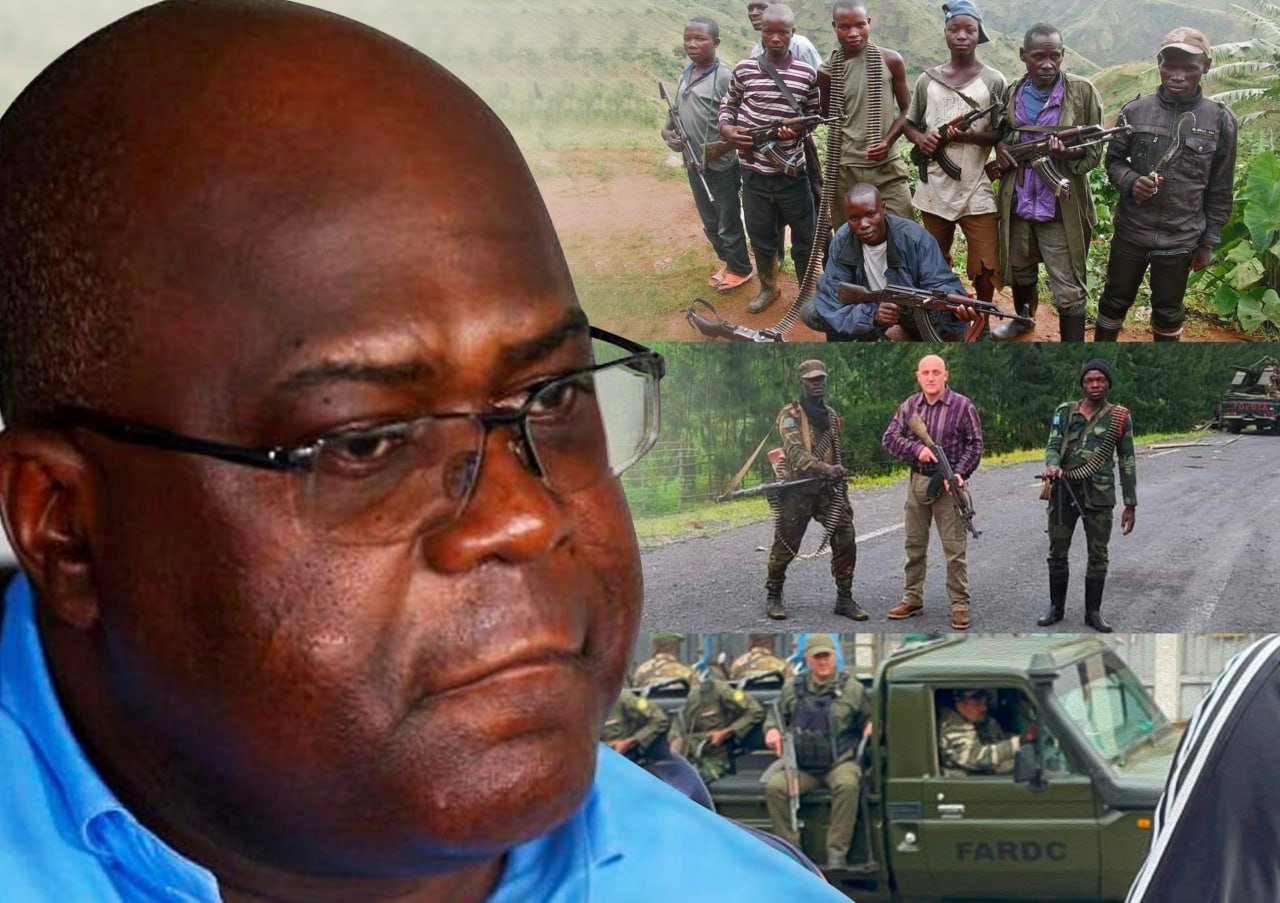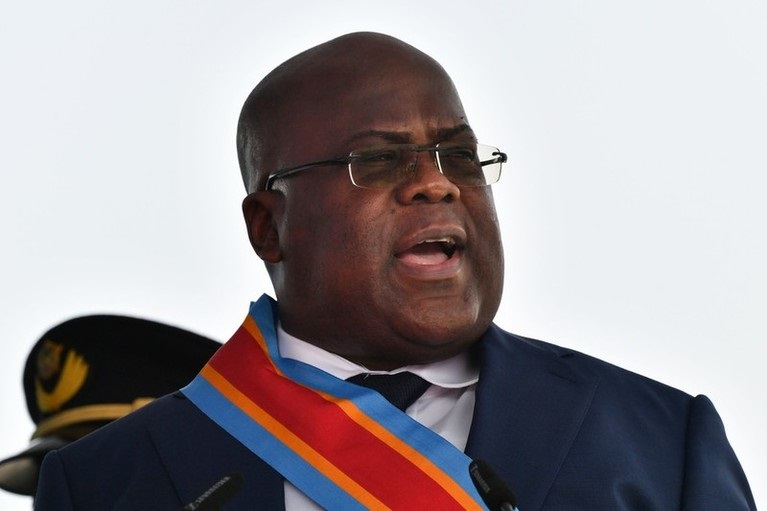Regional
DRC: Tshisekedi’s balance sheet so far
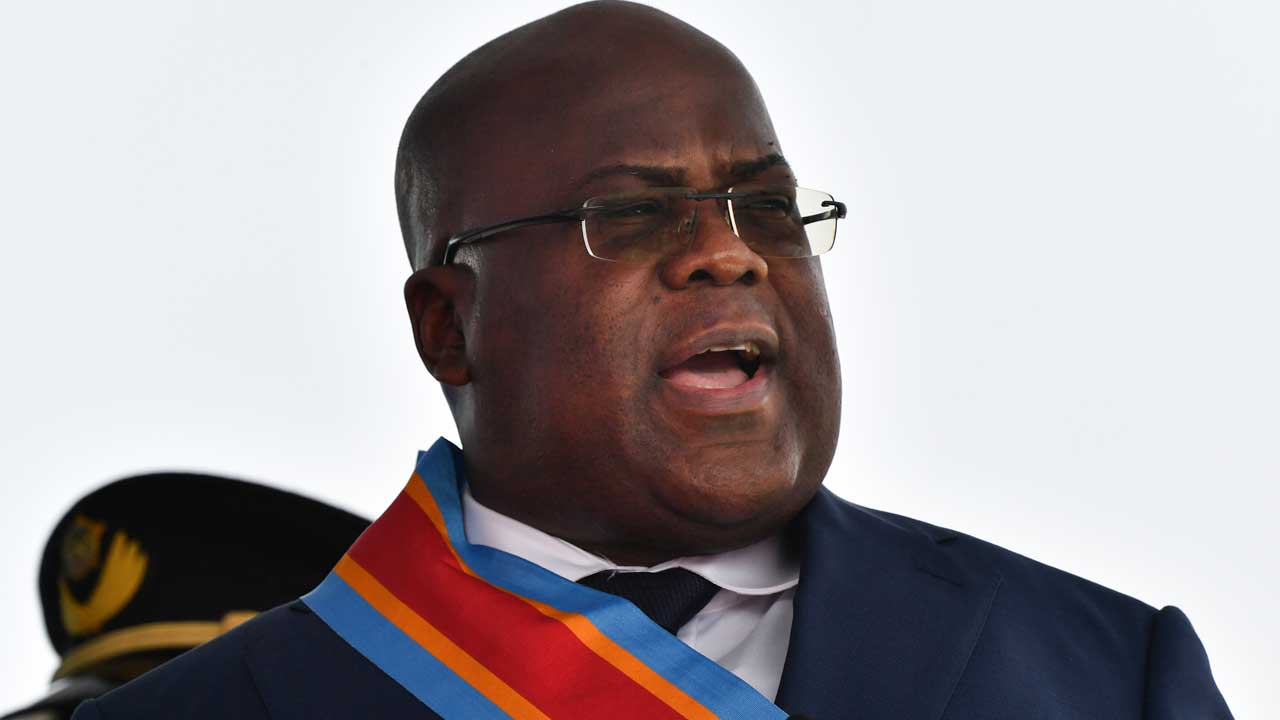
Congolese President Félix Tshisekedi took oath of office at the Palais de Nation in Kinshasa, on January 24, 2019.
The Democratic
Republic of Congo (DRC) is heading for presidential elections in December 2023
where incumbent president Félix Tshisekedi is running for a second five-year term.
Other
key contestants include Martin Fayulu who referred to the 2018 election results
as “a true electoral coup” and proclaimed himself president elect; Moïse
Katumbi, former governor of Katanga Province; and Corneille Nangaa, the former
president of the National Electoral Commission (CENI), who is in exile.
Former
president Joseph Kabila and gynecologist Dr Denis Mukwege are yet to announce their
intentions but it is assumed that they could also be eyeing the Congolese
presidency.
As his
first term is ending, Tshisekedi is recognized for great efforts, decisions and
moves which, unfortunately, were not meant to improve the Congolese’s
wellbeing.
Let’s
first consider the state of affairs in his vast country’s volatile east where
he had pledged to bring peace and stability.
Tshisekedi
initiated a state of siege, in May 2021, in North Kivu and Ituri provinces, where
military authority replaced civilian rule.
Related: Was
state of siege in eastern DRC right approach?
The
state of siege only made the security situation worse.
A large number of indiscipline, corruption, rape, robbery and looting cases have been reported among officers of Congolese national army against civilians who they are supposed to protect.
The state
of siege was extended more than 20 times, with no positive results. Armed
groups increased to over 260, with government officials participating in their
creations.
Related: Tshisekedi
using state of siege to postpone presidential elections
Internally
and externally displaced people keep on increasing, persecutions and lynching against
Congolese Tutsi are ongoing, and women are still being raped by terror groups
including the Rwandan genocidal militia group, FDLR, which the Congolese national
army is collaborating with.
Nangaa
has said that the Republican Guard of the DRC has recruited FDLR elements in
Kinshasa and Lubumbashi.
Tshisekedi
is heavily arming FDLR so that it wages war against the M23 rebels in a bid to
disrupt the rebels’ cantonment process, a part of regional efforts to restore
law and order in eastern DRC through the Nairobi and Luanda peace processes.
Related: DRC:
Tshisekedi heavily arming FDLR, preparing for war
In
addition to refusing to implement different agreements aimed at halting armed
conflicts in eastern DRC, Tshisekedi has been against the East African
Community mission in the area.
After
an Extra-Ordinary Summit of EAC Heads of State on the security situation in DRC
convened in Bujumbura in February, a video clip went viral showing Tshisekedi
humiliating Gen Jeff Nyagah, then
Commander of EAC Regional Force (EACRF).
In
April, Gen Nyagah resigned from the mission, citing “aggravated threat to his
safety and a systematic plan to frustrate efforts of the EACRF” as his reason.
Related: DRC:
What’s the implication of EACRF commander's resignation?
In his
resigning letter to the EAC Secretary General, Gen Nyagah wrote: “There was an
attempt to intimidate my security at my former residence by deploying foreign
military contractors (mercenaries) who placed monitoring devices, flew drones
and conducted physical surveillance of my residence in early January 2023
forcing me to relocate.”
Tshisekedi’s
wish was that the EACRF would fight M23, which was not the Regional Force’s
mission. The latter’s mission was to create a buffer zone, taking over the
localities where the M23 withdraws.
The
EACRF is committed to its mandate and has done a praiseworthy job.
Related: DRC:
EAC Regional Force’s mandate extended, Tshisekedi unsettled
When
Tshisekedi’s expectation failed, he hired Western mercenaries expecting that
their combined efforts with his weak army, the FDLR and other local militias,
would combine to push out the M23 in a short time. This attained nothing other
than escalating violence in the region.
Worse
still, Tshisekedi is cracking down on his strong political opponents using
military intelligence operatives and presidential guards.
A Human
Rights Watch report, in August, pinned Tshisekedi’s government on using the
state apparatus to crack down and arrest opposition politicians.
The
report noted that: “Congo’s justice system and state security agencies –
including the intelligence services, police, and Republican Guard have acted in
a partisan manner.”
Tshisekedi
is again recognized for high levels of corruption.
In
September 2022, leaked videos showed Tshisekedi’s adviser Vidiye Tshimanga promising
to win mining licenses for investors in return for a stake in a joint venture.
“If I
ask [the president] something, he gives,” Tshimanga said.
In
another video clip, Tshimanga was asked who would partner with the investors.
“Me,”
Tshimanga replied. The investor then asked if the president or a minister would
be involved. “Me, it’s the president,” Tshimanga said.
In an
attempt to mask the failures that marked his first term, Tshisekedi has consistently
scapegoated Rwanda, lying to the Congolese that Kigali is behind each and
everything that went wrong in DRC.
On his
March tour in Africa, French President Emmanuel Macron stressed the need for Congolese
authorities to look within for solutions to their security challenges,
especially in the country’s eastern region, instead of always putting the blame
of their challenges on external actors.
“Since
1994, you have never been able to restore the military, security or
administrative sovereignty of your country. It's a reality. We must not look
for culprits outside,” Macron said.
Tshisekedi
fumed.
He knew the world was witnessing the far-reaching consequences of the 2018 electoral fraud.




